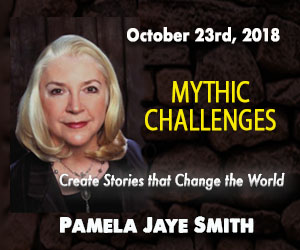
Watch the video interview on Youtube here

Nadia Murad visits a Yazidi refugee camp in Greece.
Film Courage: In viewing your website for RED REEL Video production, you have a bio saying “It was founded in 2009” and “It was born out of the recession – because if you can get a job out of college, you might as well do exactly what you want to do.”
Even though we’re supposedly in a robust recovery, I know a lot of people are still feeling the effects of the recession. Can you talk about creating your own job essentially?
Alexandria Bombach, Director, Cinematographer, Editor: I graduated in 2008 and I went to business school because I was filming since I was a kid and I bought my first camera when I was 13. I don’t think it ever really occurred to me that filmmaking could be a possibility, it was just a way too cool for me. It didn’t even occur to me that it was ever going to happen. That didn’t even cross my mind.
I ran away from home when I was about 16 and so there was kind of a pull-yourself-up-by-your-bootstraps kind of a big recognition of Oh, I need to have stability in my life. So when I did go to college it was for business and focused on that.
I went to a liberal arts school called Fort Lewis College in Durango, Colorado. We had amazing professors that let me do whatever I wanted with projects and turn in videos and it was a great atmosphere to learn about who I was and what I wanted to be. After graduating, there were not a lot of jobs. It was the peak of everyone getting fired from places and so I decided I would do video production and that started with wedding videos or tutorials. I was really connected with the outdoor industry at that time and so Osprey backpacks and things like that where they needed me to do 4 by 3 videos on DV tapes. Youtube had barely even started so it was just a different time period and slowly gained confidence enough to make my first film and it just kind of took off from there.
Film Courage: I think you had made some short films about inspiring people in the environmental space?
Alexandria: Yes, I had made a film before that called 23 FEET. It was about people living simply to do what they loved in the outdoors and took that on kind of an unorthodox tour where the film is called 23 FEET because that was the size of my Airstream. I created a screen that came down from the Airstream and had an outdoor city theater tour where in 30 different places around the West showed the film outside. Places like Tuolumne Meadows outside of Yosemite to like 30 climbers, to a blocked off street in Portland, Oregon with 300 people. So it was an amazing, very unique distribution strategy, but I had no idea about film festivals or anything like that.

What I did find was that people would come up to me after the screenings or write me letters later about how they had decided quit their day jobs and empty their rentals out and move into a van and just live the life that they have always wanted to live. It was really jolting to get these letters from people who had decided to change their life after seeing a film I’d made and it really spoke to how powerful films could be.
Film Courage: Do you think if it hadn’t been during the time of the recession, you would have been less apt to try that? Just because you saw so many things that were falling apart that we didn’t think were going to fall apart?
Alexandria: Yes…it’s probably not good to say but I might be the only person who’s thankful for the recession. Because I think I could have very easily just gotten a marketing job somewhere if it would have been a different time. It really forced me to think Okay, I could do a job I really don’t want to do and make okay money or I could do exactly what I want to do and push myself. And that was a scary, scary risk and leap to take but I’m glad it turned out that way obviously.
Film Courage: How committed do you have to be to want to turn your life over to a story?
Alexandria: With FRAME BY FRAME and ON HER SHOULDERS (my two features) I completely have everything that I had (almost disappeared in a way) to make these films. I think that’s what I’ve done, I don’t necessarily think it’s healthy or sustainable but in a lot of ways I don’t know how else to make films. That might be a personality thing? I think in order to really tell a true story you have to kind of give yourself over to it and be that passionate and dedicated and it’s so much work and it takes so long and it’s so hard that no one is really going to give as much of a sh*t about it as you are, so you just have to give your entire self to it. Especially because I’m a shooter/director/editor that does a lot of producing work too, it takes every bone in my body.

Film Courage: What advice would you have for another documentary filmmaker who knows that about themselves as well…like Okay I have to be really passionate about something and I can’t do a certain job and just sit there 40-hours-a-week and I know I want to do this but I also know how emotionally tough it is (not just for me but for my quote-un-quote subject)?
Alexandria: I think it’s important to know going into it (especially feature film) that giving yourself over to it and the emotional strain and stress is going to be a part of it and and that’s normal. I think a big part of my first feature was just like being hard on myself for being hard on myself. Or just not being able to handle the emotional strain and thinking that it was abnormal. But most people go through that scary time of like Is this the right way to tell this story? Am I doing it justice? Am I doing the right thing? This is really hard, I have no idea what I’m doing. Are we going to get the money? All the scary things that happened, feeling really stressed out about that or not stressed but uncertain. Uncertainty is normal, like the feeling of risk, it feels normal and you can get used to that part. I don’t think it ever becomes easier, but at least you could be nicer to yourself in the process.
Film Courage: So FRAME BY FRAME was a difficult, but I think I heard you say that ON HER SHOULDERS was definitely the toughest you’ve taken on in terms of making a film?
Alexandria: Yes, well topic wise it was a very fast production. But definitely handling the subject matter was very intense. With both films it was a huge journey to get from start to finish and each one very unique and very different, but it was definitely the hardest. ON HER SHOULDERS was definitely the hardest thing I’ve ever done in my life, that’s for sure.
Film Courage: How did you first hear of Nadia?
Alexandria: I remember seeing Nadia’s speech in December of 2015 at the UN Security Council and I think it was either a video on Facebook or something like that that they had chaired the speech. And I remember taking notice of that and also paying attention to the genocide that started in August of 2014. It wasn’t until July of 2016 that RYOT-FILMS reached out to me to make a short film about Nadia. And so I met her two weeks later and after meeting her it was very obvious that it should be a feature film to not only do justice to her story, but we were the only ones with the access that we had and so it felt like a huge responsibility to bring justice to it and bring nuance to the issue and to her story…(Watch the video interview on Youtube here).

Nadia Murad sits in the UNODC office, preparing for an upcoming speech at the UN.

Nadia Murad listens to speeches at a rally honoring Yazidi victims on the 2nd anniversary of the start of the Yazidi genocide. She is joined on either side by Yazda activists Ahmed Khudida Burjus and Murad Ismael.

About The Director, Cinematographer, Editor:
Like this video? Please subscribe to our Youtube channel. Or love this video and want more? You can show additional support via our Youtube sponsor tab (hit the JOIN button on the front page of our Youtube channel in the upper right hand corner or underneath any video if watching on Youtube) or through Patreon.
Advertisement – contains affiliate links:
Lights, Camera, Save! is a teen video contest that encourages teens to educate themselves and their peers about the value of saving and using money wisely. Each fall students enter the contest by submitting videos to local participating banks. These banks then choose a local winning video and submit it for judging at the national level. No purchase necessary. Void where prohibited.
Is your story issue-oriented? Do you want to raise awareness and motivate your audience to action? Put yourself ahead of the curve-of-change with the story tools in this seminar.
Please join us for a 2-hour speaker series (that will include Q&A) with mythologist, author, international consultant-speaker, and award-winning writer-producer-director Pamela Jaye Smith where she will help you learn to use the classic story tools of Mythic Themes, Archetypes, and Symbols to give your story global appeal. Here is a video from our recent event with screenwriter/author Mark Sanderson.



























